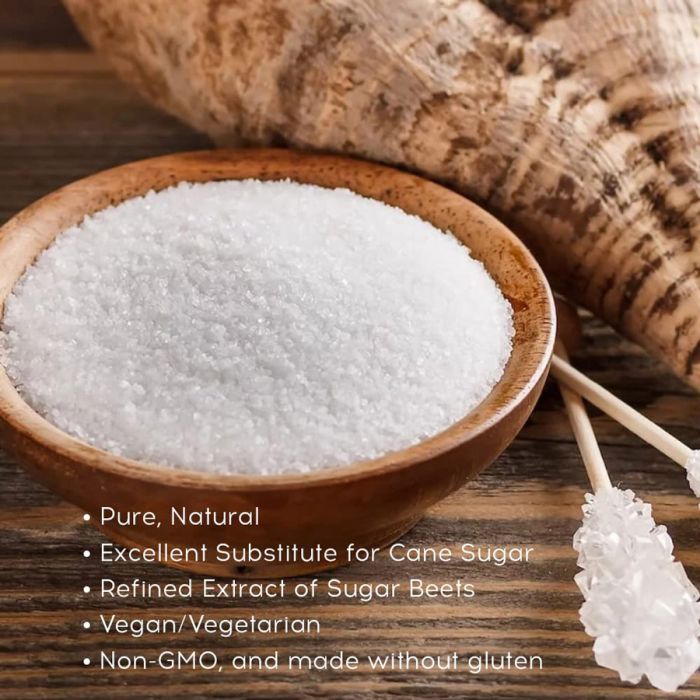The difference between beet sugar vs cane sugar extends beyond taste to how they are harvested.
The difference between beet sugar vs cane sugar extends beyond taste to how they are harvested.
Blog Article
An Extensive Consider the Advantages and Uses of Beet Sugar Vs Cane Sugar for Sweetening Options
In the world of sweetening, both beet sugar and cane sugar deal distinctive advantages and culinary functions, albeit with similar dietary accounts. While beet sugar boasts a neutral flavor perfect for different dishes, cane sugar enriches meals with subtle caramel undertones. The environmental considerations of their manufacturing are starkly various, repainting a complex photo of sustainability. This juxtaposition welcomes a much deeper exploration into just how each sugar effects not just our tastes buds but also the world.
Beginnings and Handling Techniques of Beet Sugar and Cane Sugar
Beet sugar and cane sugar, 2 primary sweeteners, stem from extremely distinctive plants and undergo various processing approaches. Beet sugar is extracted from the sugar beet, a root veggie, mainly expanded in cooler environments.
On the other hand, cane sugar comes from the sugarcane plant, an exotic turf. Its processing starts with gathering the cane, crushing it to get the juice, and then steaming this liquid to form sugar crystals.
Nutritional Comparison: Beet Sugar Versus Cane Sugar

When contrasting the nutritional content of beet sugar and cane sugar, it becomes obvious that both types give a similar energy worth. Both beet and cane sugar are 99.9% pure sucrose, making them essentially similar in terms of calorie material and dietary account.
Nonetheless, slight differences may emerge from the very little trace components that stay after handling, though these are also small to impact overall health. For circumstances, cane sugar can keep traces of molasses, depending upon the degree of refining, which may add small quantities of calcium, iron, and potassium. Beet sugar, on the other hand, commonly undergoes a process that gets rid of these trace components extra completely, causing an even purer form of sucrose.
Culinary Makes Use Of and Taste Profiles
In spite of their dietary similarities, beet sugar and cane sugar diverge notably in their culinary applications and taste subtleties. Beet sugar, obtained from sugar beets, usually has an extremely neutral taste, making it a preferred option in baking where it effortlessly integrates without altering the taste profile of various other active ingredients.
Chefs and home chefs alike choose sugars based upon these qualities. While both sugars operate likewise in regards to sweetness and physical residential or commercial properties, the small taste difference can affect the outcome of a meal dramatically, leading the option in between beet and cane sugar based on the preferred outcome in cooking productions.
Health Effects of Consuming Beet and Cane Sugars
Although beet sugar and cane sugar are commonly used mutually in cooking and baking, their health effects can differ discreetly because of their distinct handling methods. Both sugars supply about the very same amount of calories and carbohydrates per teaspoon, basically offering similar power payments with no inherent dietary advantages. The More Bonuses refining procedure for each sugar can modify the visibility of trace minerals and compounds, although these variations are typically marginal and not substantial adequate to affect one's health and wellness meaningfully.
The primary health worry about both kinds of sugar pertains to their payment to too much calorie consumption, potentially resulting in weight gain, and connected conditions like kind 2 diabetes mellitus and heart condition when consumed in huge amounts. Regardless of the resource, moderation is essential in consuming beet or cane sugars. Health experts commonly suggest limiting sugarcoated in any kind to keep optimum health and wellness results.
Environmental Influence and Sustainability of Sugar Production

Alternatively, sugar beet processing often tends to create big quantities of pulp waste, which can be repurposed as pet feed or transformed right into bioenergy, consequently reducing some ecological impacts (beet sugar vs cane sugar). Eventually, the sustainability of sugar manufacturing pivots on taking on more green farming methods and waste monitoring techniques to lower the environmental footprint of both sugar types

Final Thought
To conclude, both beet and cane sugars use valuable sweetening options, each with distinct benefits and drawbacks. While they are nutritionally similar, their farming effects and flavor accounts vary considerably. Beet sugar is remarkable for its sustainability and neutral preference, whereas cane sugar is prized for its abundant taste. Consumers ought to think about these variables, in addition to the environmental his response effects of sugar manufacturing, to make informed choices concerning sugar consumption that straighten with cooking requirements and ethical worths.
Report this page